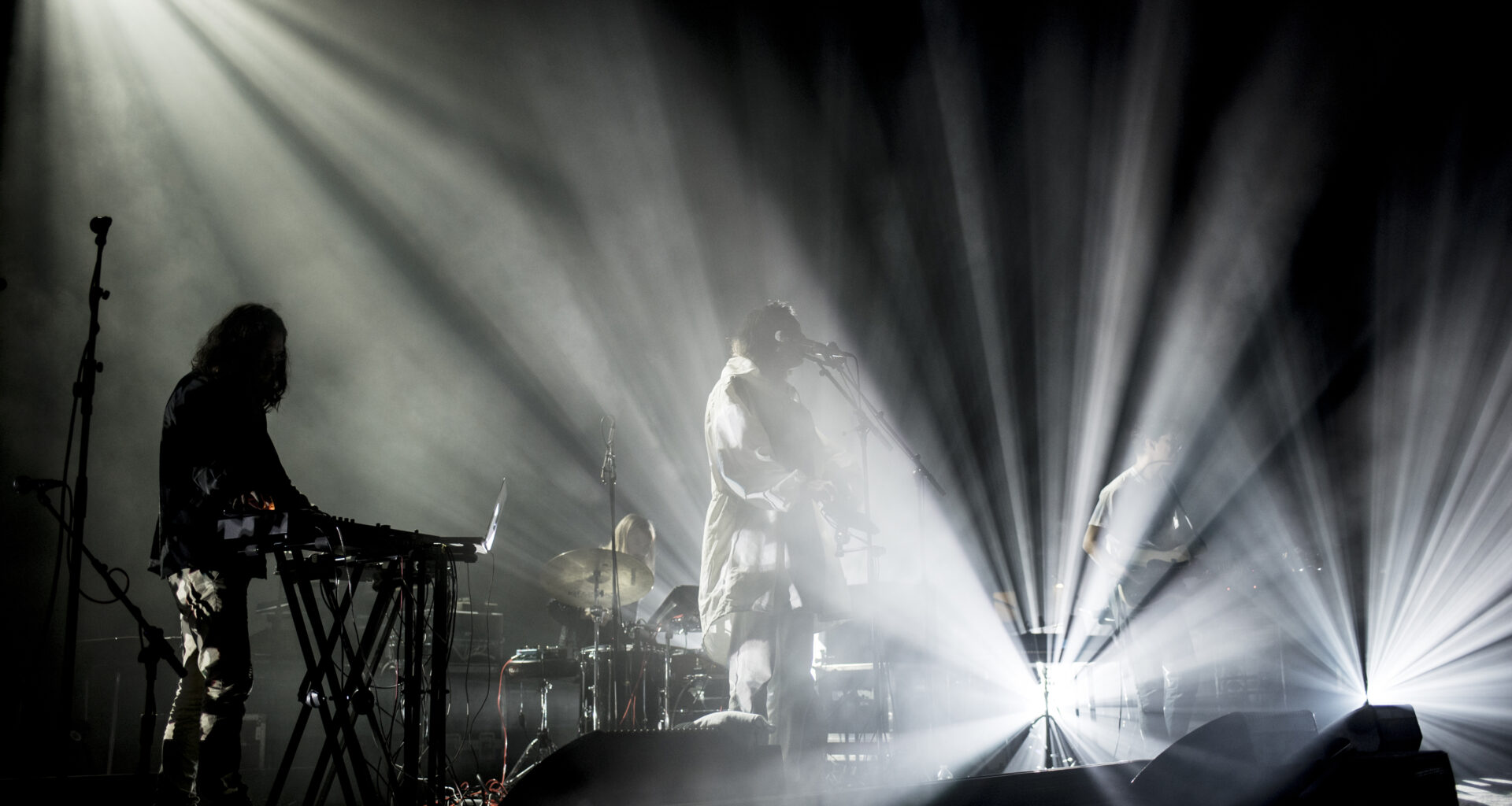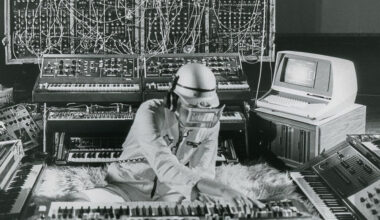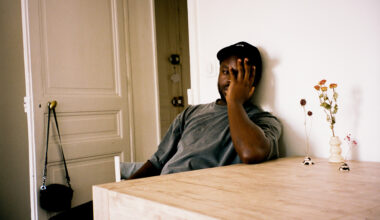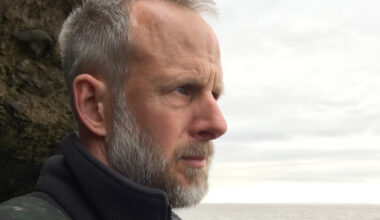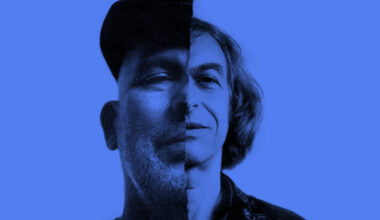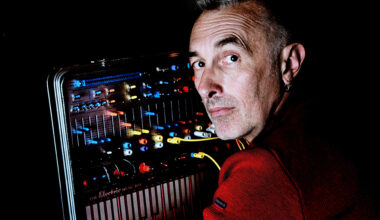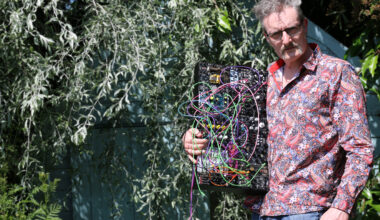Three Danes, one Finn, two bands, one called Liima, one called Efterklang, a UK tour, a couple of pints and chat about what’s what. Confused? It’s easily done
Bands are pretty weird things when you think about it. A group of musicians assemble and assume a collective name. They then write and rehearse and proceed to travel around performing pre-selected sets of songs, in a certain order, for certain allotted periods of time. And a crowd, if one comes, stands and watches and claps and whoops. And sometimes, if everyone claps and whoops enough, the band does a little bit more at the end as a thank you. That bit’s the encore. The encore’s the weirdest bit of all when you think about it.
Liima – to use one, but by no means the only name currently collectively assumed by Danes, Mads Brauer, Casper Clausen and Rasmus Stolberg plus Finnish percussionist Tatu Rönkkö – are a band who seem to operate in a kind of ever-evolving state of merry mockery of the strange rules of being in a band.
As they perform their dense, luxuriously unhurried electronic pop songs at Summerhall in Edinburgh on a nippy winter evening, they do much that you’ll see other bands do. Brauer fiddles with synths and a laptop conjuring retro-futuristic washes of digital sound, Stolberg plucks a bass in a face-contortingly funky manner, Rönkkö wallops a drum kit. Clausen sing his heart out, his voice slathered in effects, and smiles constantly, like he’s having a disgustingly good time.
And yet there’s a sense that these stylish Scandinavians are tugging playfully at the edges of the conventions of a concert as they go. At one point, the top-knotted Rönkkö leaves his drum kit and climbs down from the stage to clank out some rhythms on a selection of cooking pans and crockery balanced on an old ironing board in the middle of the audience.
Clausen (who goes through four wardrobe changes during the show) disappears from view, then unexpectedly reappears at the back of the room beside the sound engineer, before taking a promenade through the audience, hugging with strangers and beaming joyfully from ear to ear as he goes.
At the end of the show, all four members stand, shoulders locked, and stare into the audience while, for reasons entirely unexplained, ABBA’s ‘The Winner Takes It All’ blasts over the PA.
Liima exists effectively as a sort of band within another better known band called Efterklang (the Danes are Efterklang’s core founding line-up, Rönkkö is their live percussionist). Efterklang is an electro-indie-symphonic ensemble that most casually interested outsiders will have good reason to assume is no longer an ongoing concern because, well, they sort of accidentally killed it.
In February 2014, in their hometown of Sønderborg on the Baltic island of Als, Efterklang did what they called – without any obvious ambiguity – The Last Concert. A grand summation of a decade-and-a-half of making music together, which was turned into a stunning concert movie by French director Vincent Moon, filmed in one woozy continuous take (see also Moon’s beautifully intimate portrait of Efterklang titled ‘An Island’).
“At that point, the three of us had been playing music for over 15 years,” explains Clausen as we sit and chat over beers backstage in Edinburgh. “We’d put out four albums, and done a ton of stuff with symphony orchestras. We felt there was a repetition of what we were doing – put out an album, do a tour, put out another album.
“We felt it was necessary to make a point to ourselves and say, ‘Let’s look back at what we’ve done, and let’s invite our friends from all over the world and put on this big show in our hometown with a symphony orchestra’. It was like a strange funeral. At the same time, the way we presented it to ourselves was that it would be about renewal, to create a sort of ritual that would allow us to do that.”
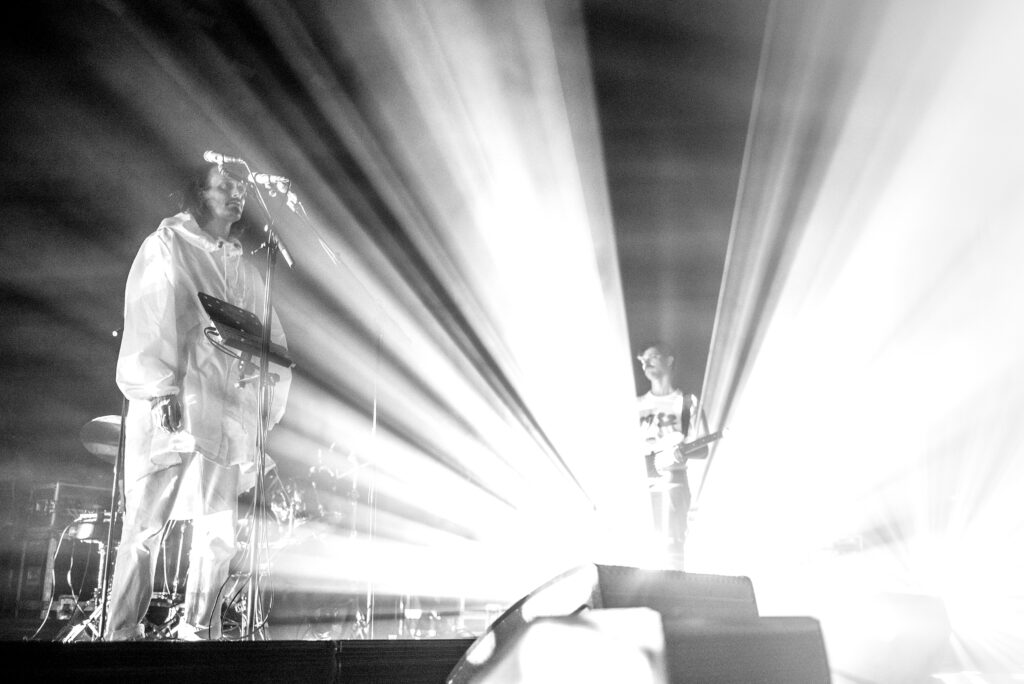
The only trouble was, Clausen concedes with mixture of a smile and frown, “that now most people think Efterklang is dead.”
Eventually, out of that ritual of renewal came Liima. After years of playing in a sprawling collective, collaborating with symphony orchestras and undertaking ambitious projects such as travelling to an abandoned Russian Soviet-era mining town to source inspiration and field recordings for Efterklang’s superb 2012 album ‘Piramida’, Liima feels to Clausen like being back in a “garage band” of his youth. Their set-up is compact, mobile, and exactly the same on stage as in the rehearsal room. Whereas previously Clausen and Brauer did most of the writing, now each of the four members contributes.
“It was liberating for us to have a collective way of writing music where we could work differently with each other, even after such a long time of making music together,” he enthuses.
It allows Liima to incorporate an element of travel and adventure into everything they do, a guiding imperative for the three Danes in particular, who all grew up on a tiny remote island.
Liima’s latest album ‘1982’ was written during a series of residencies at hotels in London, Copenhagen and Berlin, as well as a music conservatory in Viseu, Portugal, before being recorded at a studio in Porvoo in the Finnish countryside, with Grizzly Bear’s Chris Taylor as co-producer.
Titled after the year in which Clausen was born (me too in fact, we high-five at that), ‘1982’ is a record thick with analogue nostalgia and reflection, yet facing boldly into a digital future. “Like playing an 8-bit video game on a 2017 console” as one reviewer aptly put it.
“We’re in our mid-30s, we’re in the middle of life looking back and ahead,” muses Clausen, “we used that as a starting point for reflecting on where we are now.”
Despite the back-to-basics essence of Liima, the band still get symphony orchestras chucked at them. Just last week they were sounded out about a collaboration.
“Maybe at some point it might make sense,” says Clausen. “Right now, it is what it is. It’s four guys, the simplicity of that is beautiful.”
That’s not to say they aren’t still undertaking ambitious projects on the side. For instance, they recently premiered a new collaborative project under the Efterklang banner together with BOX – a Belgian ensemble that plays new music on baroque music instruments.
“It all creates a sort of conflict, a schizophrenia,” says Clausen as he attempts to explain the enjoyably idiosyncratic duality of being in two bands that are the same, but different. “Do we have to define what Liima is? Do we have to define what Efterklang is? As long as we put some excitement in there, and we find something that we care for, something we really want to do, isn’t that enough?”
Try sticking ‘The Winner Takes It All’ on at full blast and staring serenely into space, and maybe it’ll all start to make wonderful sense in your head too.
‘1982’ is out on City Slang
